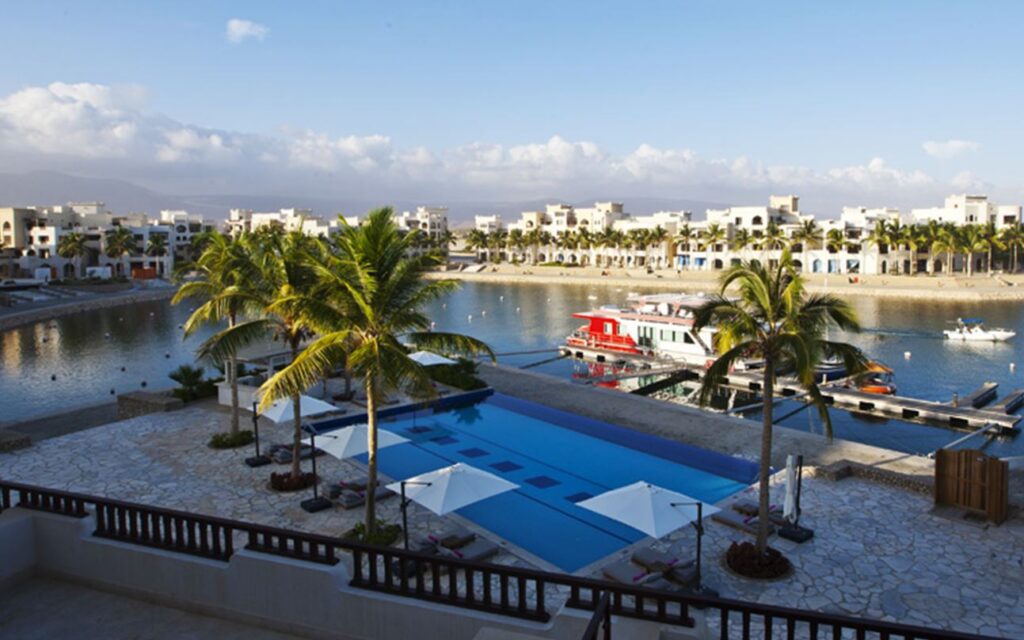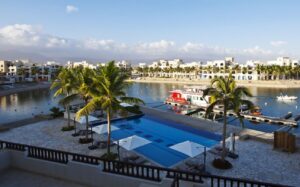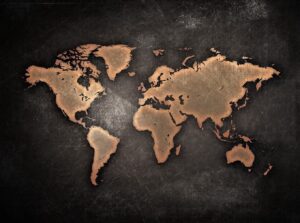Across the UK, USA, and Europe, many Muslim families are undertaking a subtle but profound lifestyle shift: relocating to Salalah in south Oman. This is not temporary holidaymaking or jaunting, but a deeper pursuit of peace, authenticity, and a recovery of values at risk in the West — and even in parts of the GCC where over-commercialisation has damaged f Islamic family and cultural life.
Salalah offers something increasingly rare in this world today. Its subtropical climate gives it a distinction from the rest of the Arabian Peninsula, especially during the mythic Khareef season when the region is splashed green. But it is not only the weather that attracts families to it. Salalah remains deeply rooted in conservative ways, offering a balance where religion, family, and society remain paramount, its key strength.
For Muslims seeking a safe, religion-perpetuating society in which to raise children, retire with dignity, or begin again. They want to make the Sultanate of Oman their home and save and spend what they earn in Oman.
Salalah has the best of both worlds. Its Islamic principles are the main attraction for families who want to live halal, and they do not want Oman to compromise its Islamic beliefs and lose them, as some of the GCC nations have done. Many Western Muslims have rejected such nations as a place of residence, while other peopleare drawn to them for that way of life.
Most of the people coming are professionals, entrepreneurs, and investors who are bringing in financial as well as human capital. They are starting businesses, investing in healthcare and education, providing jobs, and aligning themselves with Oman Vision 2040 — a vision of diversification, innovation, and sustainable growth. It is not passive migration; it is an active investment in Oman’s future.
But that is the issue. The paradigms that currently exist for residence and property ownership are not designed with this segment in mind. The Integrated Tourism Complex (ITC) concept is primarily appealing to Western expatriates looking for resort lifestyles. Muslim families seeking integration, however, prefer to live among local communities and not in gated communities. Similarly, the Golden Visa is attractive to high-net-worth individuals but not middle-class families or young entrepreneurs who prefer to move to Oman for the long term and integrate into its community.
It is here that visionary policy innovation is needed to redirect Salalah’s trajectory. By establishing pathways for freehold ownership or extended 99-year leases away from ITC zones, Oman can transform Salalah into a hub of values-driven migration for the entire world. By crafting residency and property programs specifically for Muslim families in pursuit of authenticity and belonging, Oman would draw not only FDI but also talent, capability, and value alignment.
There is, at the same time, a strong possibility of dreaming bigger. Some of these European Muslim entrepreneurs and investors don’t merely intend to settle in Salalah — they intend to achieve here what they have achieved in Europe. With vision, Salalah can be the “Halal Omani Riviera”, a place no different from the exclusivity of Monaco, Nice, or Cannes — but one that has an Islamic heart and a halal way of life. Instead of excessive luxury, it will be substance with luxury: where families can enjoy beauty, culture, and sophistication without compromising their faith.
That would not only attract Muslims in the West but also tourists and families from across the GCC and wider Muslim world seeking a halal alternative to mass-market resorts. Salalah has all the ingredients — stunning coastline, green mountains, cultural heritage, and security. With strategic investment and enabling government structures, it can be the world’s number one halal haven for values-based living, tourism, and entrepreneurship.
This would set Oman apart from its neighbours. While the majority of the GCC has built prosperity on luxury bubbles and expatriate enclaves, Oman is able to build something else: a place where foreigners live among locals, pay their way directly into society, and support and reinforce the national culture rather than undermining it. Many 3rd world expats provide little economic benefit to Oman, as much of their earnings are sent home. West Muslims will keep the money here.
This would serve local businesses, support the property market, and create lasting job opportunities for Omanis, yet make Oman increasingly respected as a land of peace, dignity, and opportunity.
Salalah is at a crossroads today. With the right incentives and institutions, it can emerge from being a summer resort into a thriving, year-round community with a richness generated by Muslim talent from all corners of the globe. The choice is simple: remain a secret treasure shared with only a select few or boldly become the world’s number one destination for Muslim families to enhance their halal life.
It is time for Salalah Municipality, the Ministry of Housing, and Oman Vision 2040 leadership more broadly to grasp this unique opportunity. By creating flexible property and residency patterns that welcome Muslim families from abroad, Oman can attract new investment, strengthen its social fabric, and forge a brighter, more resilient future for Dhofar and the nation.





